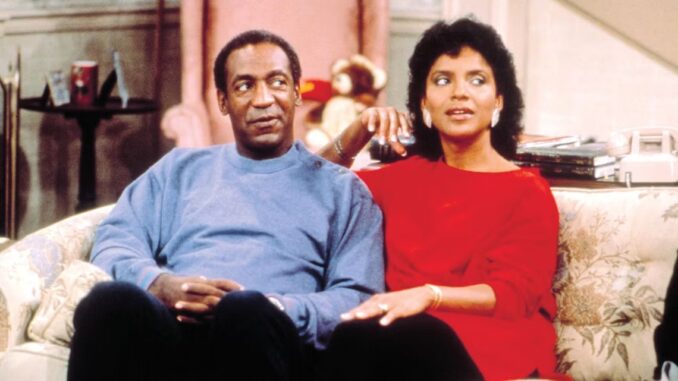
In today’s world of cancel culture and heightened social awareness, it’s impossible to ignore the controversy surrounding certain artists and their work. One such polarizing topic is whether The Cosby Show deserves a spot in our watchlists or if it’s time to leave it in the past. This article explores both sides of the argument, allowing you to make an informed decision.
The Cultural Impact of The Cosby Show
Why Was The Cosby Show a Cultural Milestone?
Back in the 1980s and 1990s, The Cosby Show broke barriers. It wasn’t just another sitcom—it was a revolutionary depiction of a successful African-American family, offering representation and reshaping narratives about Black households.
Redefining Primetime Television
With its mix of humor, life lessons, and relatable family dynamics, the show appealed to audiences across racial and socioeconomic lines.
Shaping Perceptions of Black Excellence
Cliff and Clair Huxtable embodied ambition, respect, and family values, inspiring millions. The show also opened doors for discussions on race and class in America.
The Case Against Watching The Cosby Show
The Shadow of Bill Cosby’s Actions
For many, Bill Cosby’s criminal convictions overshadow the show’s achievements. It’s difficult to separate the image of the beloved TV dad from the man found guilty of sexual assault.
Supporting the Artist Financially
One major argument against watching the show is that residuals and royalties from viewership may financially benefit Cosby. Can viewers justify indirectly supporting someone with such a tainted legacy?
Emotional and Ethical Discomfort
Many fans feel conflicted revisiting the series, knowing the pain caused to the victims. It raises the question: does enjoying the art invalidate the suffering of others?
The Case for Watching The Cosby Show
Appreciating the Work Without Endorsing the Artist
Some argue that the show represents a collaborative effort involving writers, actors, and crew members—not just Cosby. Can we honor their contributions without endorsing his behavior?
Historical and Cultural Significance
To ignore the show is to erase an important chapter in television history. For better or worse, it shaped pop culture and offered groundbreaking representation.
Separating Art From the Artist
From Picasso to Michael Jackson, history is filled with artists whose personal lives were marred by controversy. Yet, their works remain influential. Should The Cosby Show be any different?
The Ethical Dilemma of Supporting Problematic Art
Can We Watch Without Guilt?
This question often comes down to personal values. For some, the entertainment and cultural value outweigh the artist’s flaws; for others, it’s a hard no.
The Role of Cancel Culture
Cancel culture plays a significant role in these discussions. Are we erasing history, or holding people accountable?
Are We Being Hypocritical?
If we consume other forms of media created by problematic figures, does boycotting The Cosby Show make a difference?
Practical Considerations for Modern Viewers
Where Can You Watch The Cosby Show?
Today, the show isn’t as widely available, and finding it often requires deliberate effort. Does this limit its relevance?
Contextualizing the Show’s Legacy
For those who choose to watch, it’s essential to view the show with an understanding of the broader context surrounding Cosby’s actions.
Teaching Moments From the Show
Despite the controversy, The Cosby Show remains a teaching tool for family dynamics, cultural pride, and the evolution of television.
The Bigger Picture: What This Debate Says About Society
Our Relationship With Imperfect Icons
Why do we struggle so much with separating creators from their creations? It’s a reflection of our collective values and how we reconcile art with morality.
Lessons for Future Generations
By critically analyzing this issue, we can help younger generations navigate similar challenges with a more nuanced perspective.
Conclusion
Should we still watch The Cosby Show? There’s no easy answer. The show’s legacy is undeniable, but so is the harm caused by its star. Ultimately, the decision lies with you, the viewer. Whether you choose to revisit the Huxtable household or leave it behind, your choice reflects your values and how you navigate the complex world of art and morality.
FAQs
1. Can I separate the art from the artist?
This depends on your personal values. Some find it possible, while others cannot enjoy the art without considering the artist’s actions.
2. Does Bill Cosby still earn royalties from The Cosby Show?
In some cases, yes. However, the exact financial arrangements vary based on distribution rights and streaming deals.
3. Is The Cosby Show still culturally relevant?
Absolutely. It remains a significant part of TV history, though its relevance is now viewed through the lens of controversy.
4. Are there other shows that provide similar cultural representation?
Yes! Modern shows like Black-ish and The Fresh Prince of Bel-Air also highlight positive representations of Black families.
5. What’s the best way to approach problematic art?
Critically. Research, reflect, and decide what aligns with your values. Conversations about such topics are also crucial for societal growth.
Thank you for reading! Keep the conversation going and share your thoughts on this challenging debate.